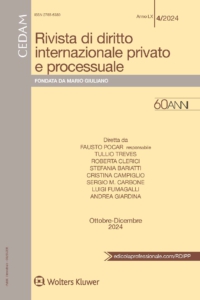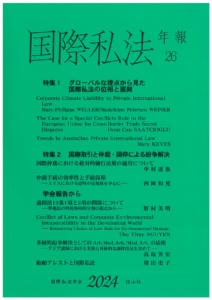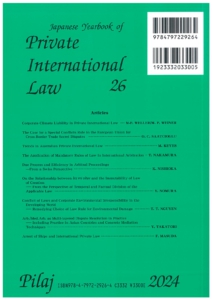A Plea for Private International Law
A new paper by Michael Green, A Plea for Private International Law (Conflict of Laws), was recently published as an Essay in the Notre Dame Law Review Reflection. Michael argues that although private international law is increasingly important in our interconnected world, it has fallen out of favor at top U.S. law schools. To quote from the Essay:
Private international law has not lost its jurisprudential import. And ease of travel, communication, and trade have only increased in the last century. But in American law schools (although not abroad), private international law has started dropping out of the curriculum, with the trend accelerating in the last five years or so. We have gone through US News and World Report’s fifty top-ranked law schools and, after careful review, it appears that twelve have not offered a course on private international law (or its equivalent) in the last four academic years: Arizona State University, Boston University, Brigham Young University, Fordham University, University of Georgia, University of Minnesota, The Ohio State University, Pepperdine University, Stanford University, University of Southern California, Vanderbilt University, and University of Washington. And even where the course is taught, in some law schools—such as Duke, New York University, and Yale—it is by visitors, adjuncts, or emerita. It is no longer a valued subject in faculty hiring.








 Since its inception in 2001, the annual survey on Chinese judicial practice in private international law, published by the
Since its inception in 2001, the annual survey on Chinese judicial practice in private international law, published by the